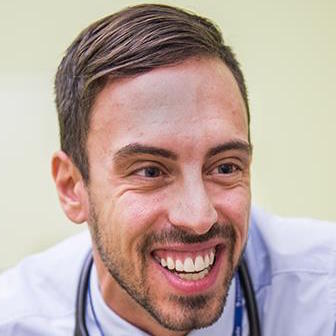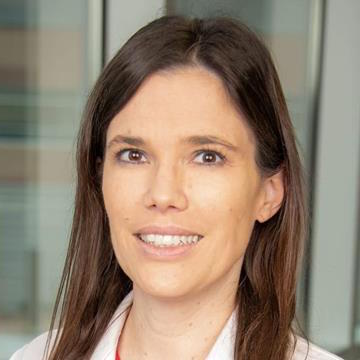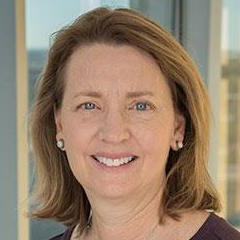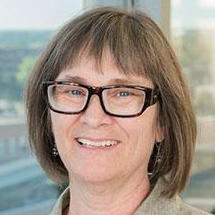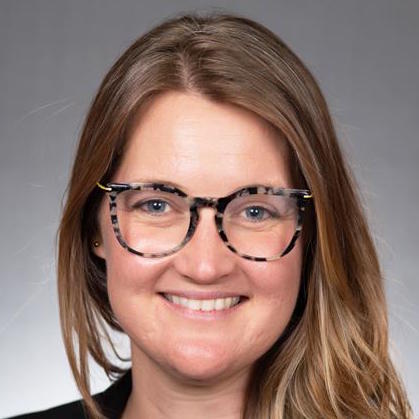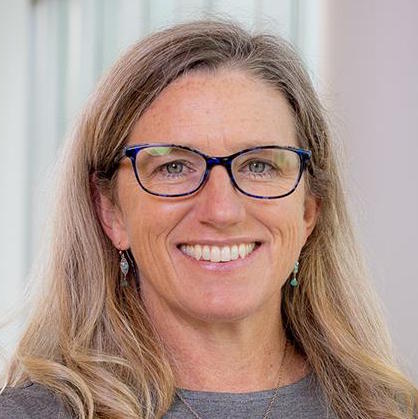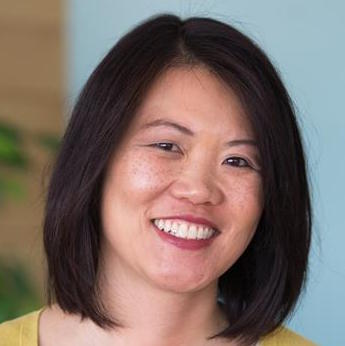For children with pediatric-onset chronic conditions, the relationships they form early on with their doctors and care team members often turn out to be among the most important connections of their young lives.
Years later, when those youth are on the cusp of adulthood and required to transition to adult care, the doctor-patient relationship becomes even more important, and thoughtful transition of care is critical. The growing field of transitional care encourages collaboration among doctors to help young patients effectively manage the shift from pediatric to adult care, to encourage those patients to play a greater part in their own health care, and to improve health care systems to make those transitions more seamless.
It’s an area of growing importance at the University of Colorado School of Medicine, where several new initiatives are aimed at creating pathways and procedures to help young patients through one of the most important medical transitions of their lives.
Making an ImPACT
Three years ago, William Anderson, MD, associate professor of pediatrics, and Jennifer Disabato, DNP, associate professor at the CU College of Nursing and associate professor of clinical pediatrics in the CU School of Medicine, launched the Improving Pediatric to Adult Care Transition (ImPACT) Program to improve the transition process for young patients to adult care, based on extensive stakeholder feedback.
The program partners with young patients and their families to create a transition plan that includes long-term health care goals; fosters communication between pediatric and adult care teams to create an individualized, uninterrupted continuum of care; and supports patients and their families, providing health education and enhancing confidence in disease self-management. A novel aspect of the program, the ImPACT Navigation Hub, was launched in 2021 with grant funding from the COPIC Medical Foundation to support hiring an RN care coordinator, social worker, and family health navigator. This team provides education and coaching on best practices, as well as direct support for transitioning families.
“The team works closely with clinic teams to understand the unique needs of their patient populations and incorporate feasible workflow strategies to align with the organization and achieve the best outcomes for the patients, families, and clinic teams,” Disabato says.
“We have patients who have chronic conditions that start in pediatrics, and we want to make sure they are set up for success — for lifelong health — as adults,” Anderson says. “We want to empower adolescents and young adults with education and self-management skills so they have the tools for success when they leave pediatric care and move to the adult side.”
Part of that education is making sure patients truly understand their disease so they are able to advocate for themselves and know what to do if an emergency arises, but other steps are more routine: being able to communicate well with a doctor, knowing how to access and fill prescriptions, knowing how to schedule an appointment. Many of these tasks fall on parents to take care of when the patients are young, but as these adolescents approach adulthood at age 18, it’s important for them to manage these tasks on their own.
Using ImPACT guidelines and a new transition planning tool in the electronic health record, providers begin introducing the concepts when patients are around age 14, adding responsibilities incrementally over time.
“The idea is that when it does come to the point where they are taking charge of their care, it's not this scary experience,” Anderson says. “We also don't want people to feel like it’s a shock that they’re leaving. We don’t want them to think, ‘What did I do wrong, that now I have to leave this team I’ve loved for the past 18 years?’ It's not that; it's that we're so excited that you've done so well, we're excited to graduate you and transition you to adult providers.”
Adult education and setting goals
An equally large part of the transition occurs in adult care, where clinicians receiving patients with pediatric-onset chronic conditions have the information they need about the patient and their condition to provide developmentally sensitive care and understanding as they progress through this life-changing moment on their medical journey.
“We want the clinicians to also feel supported and use this as a learning opportunity, and we want to set transition goals,” Anderson says. “Communication is a big part of it, too — when they receive the patient, we want them to understand that it’s part of a long-term care plan and to understand the things we've already tried along the way.”
Over the past few years, Christina Finlayson, MD, professor of surgery and former associate dean for clinical affairs, adult health, for the CU School of Medicine, has worked to build a referral process from Children’s Colorado to UCHealth to help streamline and standardize transition of care.
“We want to create a single workflow, so that whether you're looking for cardiology or neurology, you can put in a referral, and all of those will run through the same pipeline,” Finlayson says. “From our perspective, the patient needs a smooth process that will get them to the right provider, who will have the right information to pick up the ball and carry it forward.
“It's a communication piece; it's a process piece, and then there's that human nature piece: Will the new doctor be a good fit? Will they know what I need? Will they listen to me? This process is about making sure that all of those physical and emotional needs are considered as they grow into this new phase of their lives.”
Another important part of transitional care is keeping the patients’ parents involved, even when the patient is making more decisions on their own.
“Especially for some of these patients who have chronic conditions, the parents have devoted their lives to taking care of their children, and we don't want to cut them out of the process,” Anderson says. “We keep them very much involved, to make sure they feel invested that their child is going to continue to get great care as an adult.”
Building a team
Alongside the ImPACT Program, several specialties in the CU School of Medicine have their own transitional care teams, including neurology, cardiology, and urology. Dan Wood, MD, PhD, who helped to pioneer the practice of transitional urology in London, came to the Division of Urology in September 2021 to build a transitional team in urology and across surgical specialties at UCHealth and Children’s Colorado, where he was recently appointed chief of transition surgery.
“For patients and parents, the security of knowing there is somebody who understands the complexity of their diagnosis, who understands the treatment they’ve had, and is part of a team that’s capable of managing the ongoing consequences of both of those is really important,” Wood says. “There are data out there that show us that good transitional care contributes to good long-term health care outcomes.”
Similarly, in cardiology, Elizabeth Yeung, MD, associate professor of clinical practice in pediatrics, works with children and adult patients who were born with congenital heart disease. Because her group sees both children and adults, she doesn't need to transfer their care to different providers. Instead, she focuses on giving them a more adult mindset on their care, educating them on their conditions and preparing them to manage other aspects of their health.
“It’s also reinforcing any exercise limitations they might have, and dealing with things that come up, like pregnancy, birth control — all the things they need to be more aware of,” Yeung says.
Another resource at Children’s Colorado is the Adult Special Care Clinic, overseen by Eleanor Floyd, MD, instructor in the Division of Internal Medicine. The clinic provides primary care for adults with developmental disabilities and young adults in transition, and as part of her role, Floyd partners with pediatric and adult specialists in inpatient and outpatient care to make sure her patients get the most appropriate care.
“The majority of my patients will probably receive the best care in the adult world for a variety of reasons,” Floyd says. “Part of my job is triage: Who can transition now, and then for other patients, what do we need to put in place in order to make a transition safe in the future?”
The inpatient challenge
While the ImPACT program and specialty transitional teams exist to help patients make the long-term pediatric-to-adult transition, patients who are hospitalized often need more immediate transitional care.
Due to congenital diseases that began in childhood, many adult patients are admitted to Children’s Colorado. But when they develop adult health challenges like heart disease or pneumonia, or when they need surgery, things can get more complicated.
That’s where a new program on the CU Anschutz Medical Campus comes in that features the expertise of physicians trained in both internal medicine and pediatrics (commonly known as Med-Peds). Med-Peds-trained physicians are used to rotating back and forth between Children’s Colorado and UCHealth. The program created by Marisha Burden, MD, professor of hospital medicine and division head of hospital medicine, and Jenny Reese, MD, professor of pediatrics and section head of pediatric hospital medicine, with the support of the Medicaid Upper Payment Limit Program, aims to create a consultative care model where pediatricians can receive support for help treating adult patients at Children’s Colorado and clinicians at UCHealth can receive assistance treating younger patients.
“Whenever I work at Children’s as a hospitalist, it is extremely rare that a seven-day stretch goes by where I don't have at least one patient over the age of 21,” says Aaron Manning, MD, assistant professor of pediatrics and internal medicine. “They are typically more medically complex patients who are still seeing a number of our subspecialists at Children's, so that's where they continue to seek care when they require hospitalization.
“Our goal is that our team members who are working on this consult service will be able to consult on those adult patients at Children's Colorado, and then provide age-appropriate recommendations, as well as other means of support, to the primary care teams and the patients themselves,” he continues. “Additionally, our service will be able to consult on young adult patients with chronic conditions of childhood who are hospitalized at UCHealth. We hope that this will ease the transition process for patients and their families, as our team will be able to serve as a bridge between Children's Colorado and UCHealth.”
“We believe this program will provide the necessary support to our providers at each site, and most importantly, expertise that our patients and families need and deserve,” Burden says. “We also believe this could be the beginning of a much bigger program innovation with Med-Peds-trained physicians. The clinicians working on this service have knowledge of each institutions’ capabilities and can provide expertise on the best location for care based on the patient’s needs. Our hospitalist teams already successfully collaborate and share faculty, and this service will further complement these efforts.”

